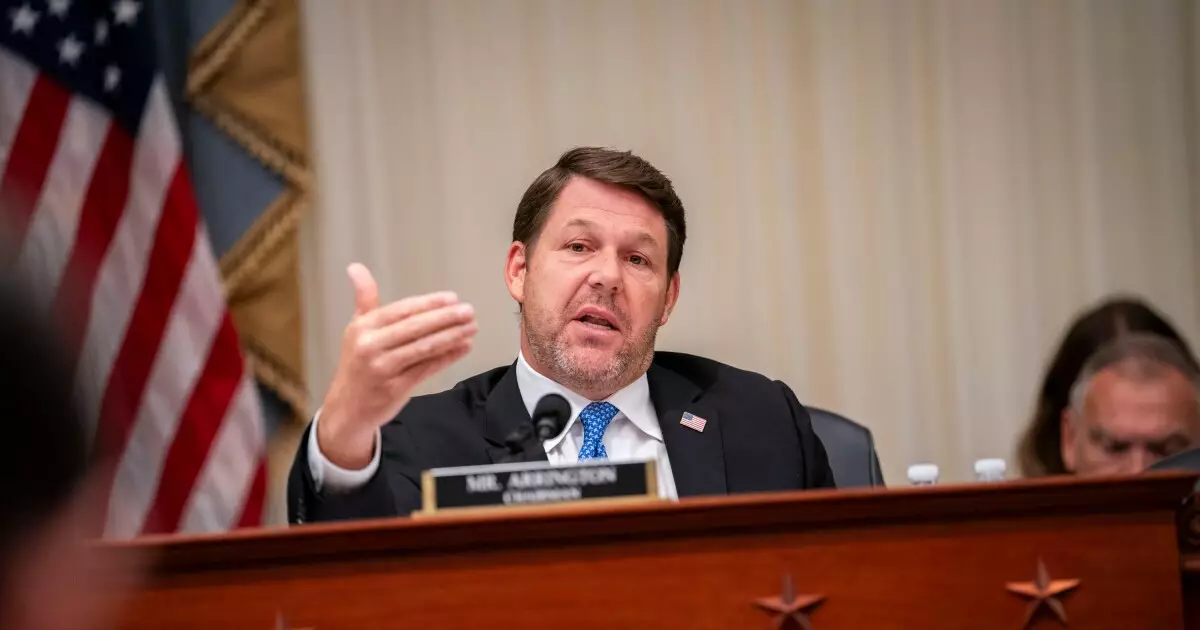As the U.S. House of Representatives gears up to consider the fiscal 2025 budget resolution recently passed by the Senate, the stage is set for a political showdown that could have dire consequences for American families. The proposed budget is aimed at paving the way for a major tax reform package, but it is risking a civil war among Republicans. House conservatives have already dismissed the Senate’s version as a weak compromise that fails to deliver meaningful reforms. This leads us to a crucial juncture—will lawmakers prioritize the tax relief that hardworking families desperately need, or will they succumb to the infighting that has plagued Washington for far too long?
What is particularly alarming here is the looming specter of a budget that not only threatens to extend deficits but might also impose limits on the municipal bond tax exemption, a crucial support for local governments. The lack of substantive cuts in the Senate’s version—just a $4 billion baseline cut compared to the House’s $1.5 trillion—speaks volumes about the priorities of lawmakers. It begs the question: Are they truly interested in fiscal responsibility, or do they merely seek to perpetuate their political power?
Reconciliation: A Double-Edged Sword
The reconciliation process has been touted as a mechanism to expedite tax reform while avoiding filibuster roadblocks, yet it also presents a significant risk of poor policymaking. The GOP’s plan to use reconciliation to extend the Tax Cuts and Jobs Act (TCJA) aligns with principal campaign promises, such as eliminating taxes on tips—an appealing measure at first glance, but one that could inadvertently deepen the deficit. According to the Bipartisan Policy Center, while the Senate’s approach allows for a staggering $2 trillion increase in the deficit, the actual figure likely soars closer to $5.7 trillion. This cavalier attitude toward fiscal constraints is not only irresponsible but reveals a troubling tendency toward unsustainable governance.
Whether one views this through a center-right lens or a more moderate perspective, the consensus seems to be that Republicans must get their house in order. A simplistic push for tax cuts without rigorous evaluations of the long-term impacts could soon alienate even the staunchest supporters. The infighting and lack of a cohesive strategy highlight an unsettling disconnect from the everyday realities of American families struggling to make ends meet.
Rising Debt: The Elephant in the Room
One of the most disconcerting elements of this budget proposal is the plan to raise the debt ceiling by up to $5 trillion—$1 trillion more than the House’s proposal. Such an escalation is alarming, especially when you consider the existing debt burden on future generations. By indulging in further borrowing, Congress illustrates an alarming trend of fiscal irresponsibility that fosters dependency on debt rather than promoting economic growth through prudent budget management.
Speaker Mike Johnson’s insistence on the need for “historic spending reductions” while navigating this complicated landscape is admirable, yet it remains unclear how these reductions can be achieved while appeasing both the Senate and conservative factions within the House. The dichotomy of pushing for tax cuts versus effectively managing the nation’s debt reveals a paradox that threatens the integrity of the party’s economic platform.
The Broader Impact on Families
Ultimately, the crux of this debate should revolve around its impact on American families. These tax reforms, designed to stimulate economic growth, risk backfiring if they come at the cost of essential programs and community support systems. The constant uncertainty surrounding tax legislation has already created significant anxiety in the markets and among average citizens who see their livelihoods and financial futures hanging in the balance.
To that end, House leaders must tread carefully if they hope to garner the support of those they represent. Fiscal conservatives like Jodey Arrington are right to express skepticism regarding the Senate’s approach, calling it “unserious and disappointing.” The path forward is strewn with pitfalls, and time is of the essence. Politically motivated decisions that overlook tangible benefits for average Americans could be the tipping point that fractures public trust in the Republican Party’s ability to manage the nation’s economy effectively.
In an era of increasing economic uncertainty, the stakes could not be higher. It is imperative for lawmakers to prioritize a sound fiscal strategy that genuinely addresses the needs of the American populace rather than succumbing to political expediency.

